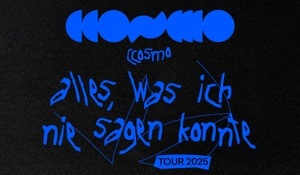Der wiedergefundene Freund
In the organizer's words:
Fred Uhlman's novel "Der wiedergefundene Freund" is prototypical of a generation of young intellectuals around 1930 who saw their highest ideal in Hölderlin's poetry. At the same time, it depicts the betrayal of this profound ideal in the parable of a youthful friendship. The young aristocrat Konrad betrays his Jewish friend Hans because he does not want to go against his pro-National Socialist family. The noble ideal is shattered by the compromising adaptation to the prevailing circumstances. The betrayal described in the novel becomes a parable for the failure of the entire German educated middle class in the face of National Socialist barbarism.
The intimate and tragic friendship between the two young people reads like a pas de deux, which we also express visually through the choreography of two dancers, two actors and a musician in the Stuttgart City Library. Emerging in the reality of the place and connecting with it, the dance heightens the experience of the text into an overall experience and transports it into our present day. For today, as then, the question arises: What can culture do? What political conditions must be in place for education and culture to be a protective shield against barbarism and for Hölderlin's hope to be fulfilled, which he expressed in his ode "To the Germans" with the question: "Will the books soon live?"
This content has been machine translated.Price information:
reduced: € 16,00 / normal: € 29,50
Location
Organizer | Collective














